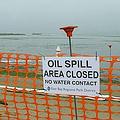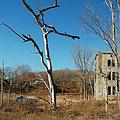 大選前,美國保育團體莫不希望布希越早下台越好,歐巴馬的勝出,對保育團體而言可說是「開創新時代的希望」。「在過去令人沮喪的8年中,環境遭受濫用與忽視的情形將畫下句點。」美國奧杜邦協會的資深副主席洛依列斯(Betsy Loyless)這麼形容。
大選前,美國保育團體莫不希望布希越早下台越好,歐巴馬的勝出,對保育團體而言可說是「開創新時代的希望」。「在過去令人沮喪的8年中,環境遭受濫用與忽視的情形將畫下句點。」美國奧杜邦協會的資深副主席洛依列斯(Betsy Loyless)這麼形容。
ENS記者日前電話採訪了洛依列斯等保育團體領導人,受訪者紛紛表示,將督促新任總統歐巴馬的儘快補救布希主政時期的爭議性環境政策。
保育團體要求歐巴馬即刻改變聯邦政府現行的石油鑽探政策,著手處理氣候變遷問題,並加強保護瀕危物種和公共土地。
「布希政府的石油鑽探政策一面地倒向石油工業」國家奧杜邦協會的立法部主任道頓(Mike Daulton)說。他批評布希總統撤回一項長達18年,禁止對外海大陸棚鑽探石油和天然氣的禁令。
布希在2008年7月解除開採禁令,並保證將否決試圖恢復禁令的任何提案。因此,石油公司可能獲准在離岸近3英里處進行鑽探作業。
「我們目前的海岸政策不受歡迎,這是一個無法保護海灘和沿海經濟的政策」道頓說。
 除了回復禁止離岸開採的命令,保育人士更熱切地期盼能用更審慎的方式在公有土地上進行能源生產。荒野協會公有土地計畫副主席摩根(Ann Morgan)表示,「在過去8年間,全國已有數百萬畝易受侵害的棲息地出租作為石油與天然氣鑽探之用。而且石油鑽探已成為『公有土地』的主要用途。布希政府的發展進程已經超過土地管理者對於空氣、水資源,和野生動物的保護能力。我們需要進行恢復生態平衡的改革行動。」
除了回復禁止離岸開採的命令,保育人士更熱切地期盼能用更審慎的方式在公有土地上進行能源生產。荒野協會公有土地計畫副主席摩根(Ann Morgan)表示,「在過去8年間,全國已有數百萬畝易受侵害的棲息地出租作為石油與天然氣鑽探之用。而且石油鑽探已成為『公有土地』的主要用途。布希政府的發展進程已經超過土地管理者對於空氣、水資源,和野生動物的保護能力。我們需要進行恢復生態平衡的改革行動。」
保育團體要求歐巴馬積極介入處理氣候變遷並應付暖化世界對野生動物和公有土地的影響。
「野生物保衛者」政府關係部副主席杜威(Robert Dewey)說:「我們所珍視和賴以為生的自然資源正遭遇麻煩,任何欲解決全球暖化問題的計畫必須包括保護這維繫大家生存的自然體系。」
杜威指出,氣候變遷必須成為聯邦自然資源機構的首要課題,而聯邦政府必須推動跨機構與科技合作,以協助執行氣候變遷的相關計畫和政策。
杜威建議,為了減輕氣候變遷對自然資源的影響,額外的預算支出是必要的,而相關經費來源可來自聯邦政府溫室氣體排放總量管制與交易計畫的收入。
保育人士也期望重啟保護瀕危物種的努力, 他們認為政府部門已大量削減資金來源,並破壞對瀕危動植物的保護措施。
 美國野生動物基金會的執行董事科斯迪亞克(John Kostyack)說:「保護野生動物一定要成為歐巴馬政府與新國會優先處理事項。我們必須開始進行復育的工作,而非僅僅減緩物種滅絕的速度。」他表示:「布希政府對於瀕危物種法已公開反對。首先要撤銷那些造成傷害的政策。」
美國野生動物基金會的執行董事科斯迪亞克(John Kostyack)說:「保護野生動物一定要成為歐巴馬政府與新國會優先處理事項。我們必須開始進行復育的工作,而非僅僅減緩物種滅絕的速度。」他表示:「布希政府對於瀕危物種法已公開反對。首先要撤銷那些造成傷害的政策。」
科斯迪亞克認為,氣候變遷的議題必定成為保護瀕危物種的關鍵,「我們不再能忽視這個重大問題,全球暖化已對野生動物造成影響。」
他指出,在聯合國跨政府氣候變遷專家小組於2007發表的最新報告中,將近1/3動植物因氣候變遷的而處於滅絕的危險中。
「我們不能認為未來氣候與過去相同。但不幸的是,這正是近幾年人們的認知。」科斯迪亞克說。
The end of the Bush administration can't come soon enough for U.S. conservation groups, who believe that the election of Barack Obama has ushered in a "new era of hope" for the environment.
"Eight dismal years of environmental abuse and neglect are now coming to an end," said Betsy Loyless, the National Audubon Society's senior vice president for policy.
Loyless joined other conservation leaders in a telephone briefing with reporters on Thursday, outlining their commitment to press President-elect Obama to quickly reverse some of the Bush administration's controversial environmental policies.
The conservation groups urged Obama to swiftly change current federal drilling policies, tackle climate change and strengthen protections for endangered species and public lands.
The Bush administration's drilling policies "have been slanted dramatically toward the oil industry," said Mike Daulton, the National Audubon Society's legislative director.
Daulton criticized President George W. Bush for withdrawing an 18-year executive ban on drilling for oil and natural gas along the outer continental shelf.
Bush lifted the ban in July and also pledged to veto any legislation aimed at reinstating the restrictions. As a result, oil companies may be permitted to drill as close as three miles offshore.
"We now have a policy for our coasts that is unacceptable - a policy of zero protection for our beaches and coastal economies," Daulton said.
In addition to restoring the offshore moratorium, conservationists are keen to see a more measured approach to energy production on public lands, said Ann Morgan, vice president of public lands program at The Wilderness Society.
Millions of acres have been leased for oil and gas drilling in the past eight years in sensitive habitats across the nation, she said, and drilling has emerged as "the dominant use of public lands."
"The Bush agenda for development has trumped land managers' ability to protect air, water, and wildlife," Morgan told reporters. "We need reforms that will restore that balance."
The conservation groups urged Obama to aggressively tackle climate change and to address the impacts of a warming world on wildlife and public lands.
"The natural resources we treasure and rely on for survival are in trouble," said Robert Dewey, vice president of government relations for Defenders of Wildlife. "Any plan to address global warming must include steps to protect the natural systems that sustain us all."
Addressing climate change must be a "top priority" of federal natural resource agencies, Dewey said, and the government needs to bolster interagency cooperation and scientific capacity to aid implementation of climate change programs and policies.
Additional money must be found to implement efforts to limit the affects of climate change on natural resources, Dewey added, suggesting the money could come from revenues from a federal greenhouse gas emissions cap and trade program.
Conservationists are also hoping for a renewed effort to protect endangered species - they contend the administration has slashed funding and undermined protections for imperiled plants and animals.
"Safeguarding wildlife must be a top priority for both the Obama administration and the new Congress," said John Kostyack, National Wildlife Federation's executive director. "We need to start recovering species, not simply slowing their extinction."
The Bush administration has shown "overt hostility" toward the Endangered Species Act, Kostyack said.
"The first step is to reverse those damaging policies," he said. "But beyond ?we need policies to get ahead of the extinction curve."
The issue of climate change must also be a key part of the effort to protect endangered species, he stressed.
"We can no longer ignore the elephant in the room - global warming is already having an impact on wildlife," Kostyack said.
He pointed out that the latest report from the United Nations' Intergovernmental Panel on Climate Change, issued in 2007 estimates that nearly one-third of all plant and animal species are at high risk of extinction from climate change.
"We can't assume that the future climate will be identical to the past climate," he said. "That has unfortunately been the case in recent years."


